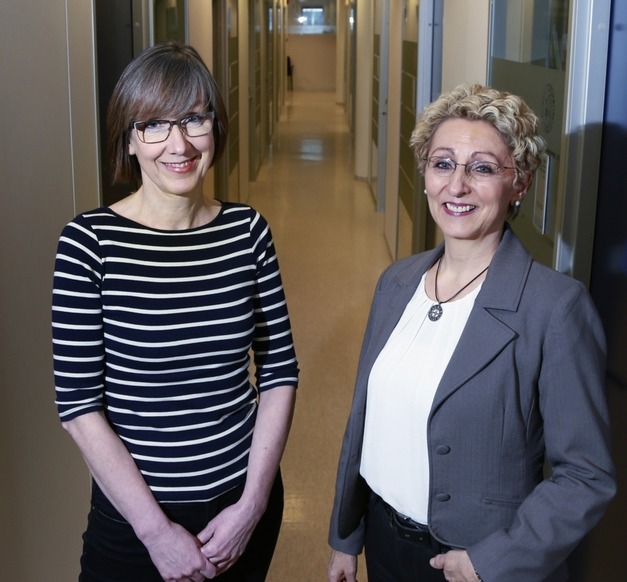Erla S. Kristjánsdóttir, lecturer at the Faculty of Business Administration and Þóra Christiansen, adjunct lecturer at the Faculty of Business Administration
This research is based on exploring the ways in which immigrants on the Icelandic job market experience communication and their own bargaining positions with their superiors and employers. We conduced in-depth interviews with twelve university educated immigrants working in Iceland and are now starting to analyse the data," says Erla S. Kristjánsdóttir, a lecturer at the Faculty of Business Administration, of the project she is working on with Þóra Christiansen, her colleague at the Faculty of Business Administration.
A 2009 report from the Social Science Research Institute and the Multicultural and Information Centre states that around half of immigrants believe they do not make full use of their education here in Iceland. Only around half of those with a specialised education work in specialist positions here in Iceland. "We found this very interesting since we have both been foreigners, having lived and worked abroad for a period. This inspired us to investigate whether immigrants felt their position was too weak to apply for suitable jobs or whether they faced other obstacles," says Þóra.
Erla S. Kristjánsdóttir and Þóra Christiansen
"Immigration has risen faster in Iceland than in the other Nordic countries and so there are a lot of opportunities to take advantage of the strengths that increased diversity brings."

"Our initial results indicate certain obstacles and prejudice, as our interviewees felt themselves to be second-class and often heard the phrase 'helvítis útlendingur' ('fucking foreigner').The language is also an obstacle and being unable to express themselves in Icelandic increases their insecurity – even those who are fluent in Icelandic say that it is difficult to be a foreigner in Iceland. Our interviewees spoke about how difficult it was to fit in with Icelanders and few of them had Icelandic friends. Most of them, therefore, associate with people from their own countries outside working hours. The majority of interviewees said that they constantly had to prove themselves and that in fact they were lucky to have a job. They also found it difficult to get information on other people's salaries and ask for pay rises," adds Erla.
"Immigration has risen faster in Iceland than in the other Nordic countries and so there are a lot of opportunities to take advantage of the strengths that increased diversity brings. For immigrants to be able to really contribute to society, society must fairly value their knowledge and strengths. Job contracts are one part of this process," says Þóra, pointing out that the experiences of university educated immigrants in Iceland of negotiating with their employers have not been researched before. "This research focuses on highly educated immigrants who could enrich Icelandic society, not just culturally but also through their knowledge."


